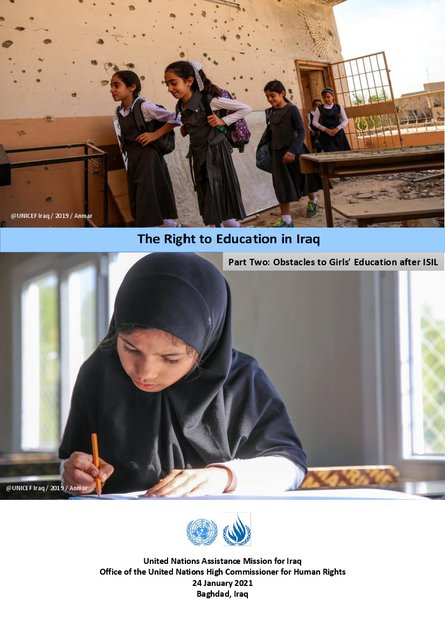
Executive Summary
Iraq’s Constitution and national laws as well as applicable international human rights standards, protect and promote access to inclusive and equitable quality education. While equality of access to education by Iraqi children serves to amplify long-term peace, stability and economic dividends, and despite the existing normative framework, significant barriers continue to limit girls’ access to education. This report, The Right to Education in Iraq - Part Two: Obstacles to Girls’ Education after ISIL, examines how traditional gender roles and norms, family levels of education, poverty, perceived protection concerns, and trauma continue to limit girls’ inclusive and equitable access to education in Iraq, particularly in areas formerly under control of the so-called Islamic State of Iraq and the Levant (ISIL).
The report is the second in a series of reports on the right to education in Iraq2 prepared by the Human Rights Office of the United Nations Assistance Mission for Iraq (UNAMI) and the Office of the United Nations High Commissioner for Human Rights (OHCHR). It provides recommendations to the Government of Iraq, aimed at addressing barriers and creating an enabling environment for girls’ education in accordance with Iraq’s laws, human rights obligations and commitments to sustainable development. The recommendations are consistent with Iraq’s pledges under the 2030 Agenda for Sustainable Development, the outcome of its 2019 Voluntary National Review (VNR), and the recommendations on quality education accepted as part of Iraq’s third Universal Periodic Review.